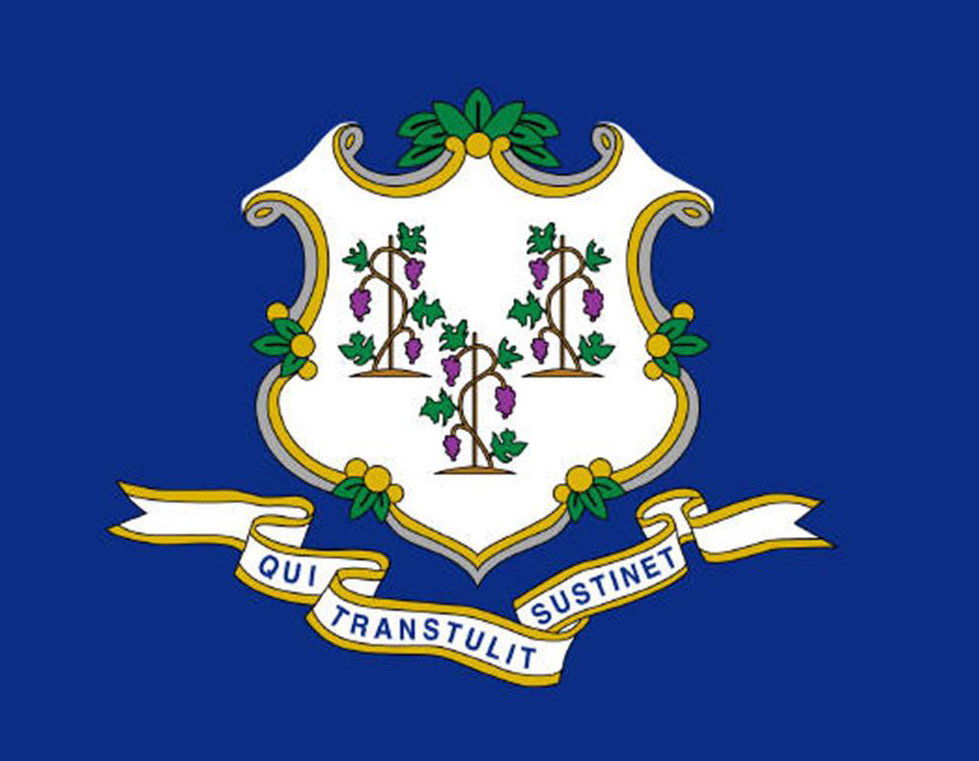
The Competitive Alcohol Liquor Pricing Task Force Has Met Twice Already to Discuss Laws Affecting You—from Minimum Pricing to Liquor Tax. Here’s What They’re Saying
By Lauren Daley
When Connecticut Gov. Dannel P. Malloy (D) ruled to allow retail liquor and alcohol sales on Sundays and certain holidays in Connecticut earlier this year, he also assigned the behemoth undertaking of researching more possible changes to state liquor laws to a 15-member Competitive Alcohol Liquor Pricing Task Force.
They face both a tight deadline, Jan. 1, 2013, and a massive undertaking: to examine, review, and analyze Connecticut alcoholic liquor taxes, quantity and volume discounts, existing liquor permit restrictions, minimum pricing and price posting; they must also look at alcohol law in other states and note the impact on consumers and industry stakeholders.
The creation of the Task Force itself was an olive branch, of sorts— the legislation that passed was far less extreme than the original put forth by Malloy. For instance, the legislation passed allows no one to own more than three package stores—Malloy originally proposed nine. The legislation that passed allows retailers to sell one item a month for 10 percent below the cost of acquisition—Malloy’s proposal was for five items. “I think we’ve got to get out of the business of minimum pricing. I made it very clear I think we’re anti-consumer in this state. We’re driving up costs artificially,” Malloy told the CT Mirror recently.
The Task Force is co-chaired by Deputy Majority Leader State Rep. Kathy Tallarita (D) from the 58th District in Enfield on the Massachusetts border, appointed by House Speaker Chris Donovan, and by Edward Berthiaume, who co-owns Mr. B’s Discount Wine & Spirits in Brooklyn, Conn. He was appointed by Senate President Pro Tem Donald Williams (D.) On their second meeting Aug. 1, the task force broke up into four subcommittees— Minimum Pricing, Taxes, Quantity Discounts, and Permit Restrictions—in order to cover more ground by the holidays. Tallarita will chair Taxes and Minimum Pricing subcommittees; Berthiaume will chair Quantity Discounts and Permits. Subcommittees will meet on their own through Oct. 1, Tallarita said.
At the next meeting on September 12, 2012 at 11:00am in Hearing Room B, which is open to the public to attend, the task force will hear progress report from subcommittees. “At that point, we’ll invite people to come and speak from different segments—convenience stores, farm wineries, breweries—all the different aspects from the industry that are not at the table with us as members,” Tallarita told The Beverage Journal in a phone interview from her home. “I’d love to hear from everyone, but we can’t add more people to task force because members are already set in the statue,” she said. E-mail may be sent to Tallarita at Kathy.Tallarita@cga.ct.gov.
At their Aug. 1 meeting, the Task Force saw presentations from Department of Consumer Protection Commissioner William Rubenstein—a task force member who attempted to summarize the general concepts which guide how alcohol is sold in the state—and from the Department of Revenue Services Tax Unit Manager in the Audit Division Marc Papandrea, who reviewed alcohol taxes in Connecticut. Both presentations are available to the public online at http://www.cga.ct.gov/gl/liquor/docs.asp.
Rubenstein said that there are tight restrictions as to who can possess permits to sell alcohol, how many, and where. Legislature has “chipped away at” those restrictions carving out exceptions here and there, and leaving the state with a fairly complicated permitting system, he said according to CT News Junkie. But with the exception of the recently legalized sale of alcohol on Sundays, the general rules haven’t changed in a long time, and are “sometimes arcane,” Rubenstein said according to the CT News Junkie.
“Apparently, a lot of our rules regarding alcohol in this state date back to Prohibition-era,” said Tallarita. “I was shocked to find out that pharmacies can still hold alcohol permits—again that goes back to Prohibition. I had no idea that CVS could sell alcohol in Connecticut; but apparently they made a corporate decision not to.” Task Force co-chair Berthiaume declined to comment for this story.
TAXES
“I’d love to see the taxes reduced. To me, that’s a huge issue off the top. I’d love to take all the taxes off then take a look once we do that, see what happens if you remove those taxes,” Task Force Member State Rep. Sandy Nafis said. Tallarita agreed: “We know we’re directly competing with Massachusetts, which has no sales tax. What can we do, if anything, to lower our tax structure? Can we do that? Is there something (else) we can do to help us become more competitive with surrounding states?” Indeed, taxes are a major concern of The Beverage Journal subscribers.
The Beverage Journal issued a non-scientific, opinion-based survey asking about concerns regarding the Task Force. It was completed in full by 95 retailers—individuals who own stores and restaurants, and who are licensed by the state. They were asked what “issues they would want addressed as part of the Task Force study.” Major concerns include “unintended” impacts such job loss, loss of business equity, market homogenization, unrealized projected tax revenues, and lack of product variety for consumers resulting from such changes in the long road.
Excise taxes, particularly, were repeatedly listed as an area of concern. Many subscribers suggested studying taxes “instead of changing existing liquor laws,” adding that Massachusetts could be used as a model for both excise tax and liquor sales tax. “Massachusetts reduced their excise tax on alcohol and removed the sales tax. If the Governor wants to see more business in this state, then remove the taxes,” read one typical response. Another suggested forgoing minimum pricing, which Malloy stated as a key goal, but instead in “reducing the excise tax the pricing would come down and be competitive with MA to the consumer” and that approach “would do more to lower the retail prices and increase in-state purchases.”
But Task Force member Brian Durand, who helped draft Malloy’s original liquor reform proposal, said to look at the bigger picture: “Taxes are always going to be part of the discussion, but they should be considered in the broader framework of the state’s other laws and regulations. Again, we need to ask ourselves what’s really keeping Connecticut from being competitive.” Durand, who works for the Office of Policy Management and is one of the Governor Malloy’s designees to The Task Force, added, “Getting rid of the ban on Sunday sales was an important first step, but there’s more Connecticut needs to do if we want to be competitive.”
PRICING
Many respondents to The Beverage Journal’s survey asked that the Task Force study “the net effect of the proposed changes on jobs.” A refrain that smaller stores are the “backbone” of Connecticut communities was echoed. One stated “recognize the facts that the proposed changes hurt small businesses and the communities that support them. The existing system is a lot more competitive than many people think especially when taxes are considered in the equation.”
Consistent comments stated that the proposed combined changes of “eliminating minimum pricing” and “allowing quantity discounts to large stores” would “put me out of business” due to “opening the door for the wholesale giants” and “big box” stores with a consequence being that “my permit would be worth nothing.”
It was remarked that at present, consumers have an unlimited variety and “when there is volume discount, less variety will be available as only big stores can afford to pay volume discounts.” Another said that volume discounts will “kill the small business, small brewery and small distributor.” Tallarita said, “We don’t dictate the prices of milk or aspirin. I don’t understand why we dictate the price of alcohol.” Tallarita continued “With quantity discounts, (I wonder) can they do a co-op? Can a bunch of small stores work together to buy (a large quantity discount)? I don’t know. Those are things we can look into and discuss to see if that’s legal. I don’t want to move forward with anything that’s going to put people out of business.”
“There’s a lot of concern about what impacts would occur to smaller package stores owners, by wholesale changes being proposed,” Nafis said. “We have to be careful that anything we do with quantity discount won’t hurt small package stores…. But we’re not taking about selling oranges here; we’re talking about a highly-regulated commodity that has the ability to make people sick.”
Durand said he’s keeping the consumer in mind. “We need to be clear about where the price disparity in this industry is coming from when consumers get to the cash register. The state’s minimum bottle system can easily mean a built-in $3 or $4 difference on a bottle of wine or spirits, and often more.” Durand is concerned that Connecticut’s “outdated liquor laws” have kept the state from “being competitive with neighboring states, and our businesses and our consumers are the ones losing out. Local businesses watch state residents drive across the borders in search of a better deal, and the consumers that do shop here are forced to pay unnecessarily inflated prices. We don’t have to do anything drastic to right the ship – simply getting our laws in line with our neighbors will result in more dollars staying in Connecticut, and it will give consumers a break at the same time.”
Task force member David Rutigliano, who owns five restaurants, told the Associated Press he was worried that if big box discount chain stores were allowed to start selling liquor, the choice of liquor distributors in Connecticut could be reduced due to lack of competition. He was also concerned that restaurants would not be able to purchase much liquor as the bill would have required for the discounts.
OTHER CONCERNS
Task Force member James Cetran, police chief of Wethersfield, said his main concerns are “problems like drunk drivers… We have made such great strides in reducing drunk-driving over the years in this State. I would hate to lose that. If everyone acts responsibly, I think we can be competitive and still survive.”
As for sales and commerce, Cetran said, “I need to listen to everyone’s point of view because I am such a novice in regards to the selling of liquor. I hope everyone will get a chance to speak their (opinion)… I don’t have a problem with Sunday sales, as I think that the sales will balance out in the end. Maybe there will be less bar-hopping on Sundays… I plan on keeping an open mind with eye on law enforcement issues.”
In their first meeting, Task Force member David Leon, a package store owner from Simbury, asked to add beer territories to the list of items under discussion. A “beer territory” is the geographic area where a distributor can sell their beer. Tallarita mused in an interview with The Beverage Journal: “Do we have to have beer territories? How do they work? These are all things we need to talk about, but it will be hard to talk about. I mean, 49 other states have this current system, so I’m not sure we could do anything with that, but they’re questions we need to ask. There are a lot of questions here.”
Side Bar: Our Survey Says
According to a survey issued by The Connecticut Beverage Journal, in the first two months of Sunday sales, 84.5 percent of package store owners chose to open Sundays. Of those, 15.2 percent said Sundays were “profitable,” 43 percent reported “break-even” status, and 41 percent report “a loss.” The anonymous survey was sent to over 500 possible respondents.
“None of the package store around here really wanted it. I feel bad for them,” said State Rep. Sandy Nafis. “It’s definitely impacting their lives…We’re in the middle of the state, so it’s different for us than border towns. The grocery stores made out because they’re open anyway. For years I opposed Sunday sales, but this year the Package Store Association came to us and said they were OK, so I went for it. I can’t say I felt great about it, I’m not completely sure it was the right thing to do,” Nafis said. “We’re not selling screwdrivers here. This is a controlled substance that has the ability to make people very sick. If not handled properly, it can be a real problem. It does need to be controlled. It is something that has the ability to harm.”
Sunday sales are going “excellent,” in the Enfield area on the Massachusetts state line, Tallarita said. “I was just at a package store today and they said the holidays were phenomenal. Others tell me they want longer hours on Sunday, from noon to 9 p.m., because a lot people are coming in after 5 p.m. Again, it would be if they so choose. Some (stores) only do 10 a.m. to 3p.m. It’s never been about the liquor to me; it’s always been about the freedom of choice.”
“The ban on Sunday Sales that ended this year was a prime example of Connecticut failing to update our laws to remain competitive,” said Task Force member Brian Durand, who works for the Office of Policy Management and is one of the Governor Malloy’s designees. He helped draft Malloy’s original liquor reform proposal. “We were the 49th state in the country to finally do away with the ban and instead allow Connecticut businesses to determine for themselves which days they want to open. It was an historic and important first step, but there’s still more we can do,” he said.











